So What, Who Cares (vol 2, issue 43) Who wants to remember the month that was?
Hello! The publishing frequency took a hit this month for two reasons (writing over at Previously.TV and going on vacation) but it's still useful to see exactly what got covered during the Bracketology month.
A programming note: Bates Motel has ten episodes and the series finishes season three in early May. We'll revisit publication frequency/days of the week after that gig wraps up.
*
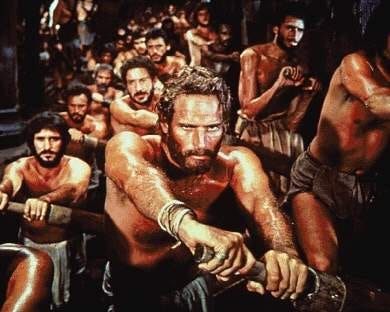
This month, in The State Of The American Worker: A survey of Silicon Valley parental leave policies reveals one bit of good news: parental leave is no longer a gendered perk as men take time off.
But it also reveals a trend that may give people pause: In the current job market, talented workers who want to have a family face a choice between putting off parenthood while they put in time at those small, early-round startups, or working for one of the big guys so they face less financial pressure when they start a family (vol 2, issue 31).
And speaking of trends that ought to give people pause: managers are still buying into the myth that being physically present at work is the same thing as being productive at work. This is thought to be one of the contributing factors for why working mothers make 76 cents for every dollar a man makes in the workplace (vol 2, issue 32) -- is it any wonder women have become ambivalent about having children (vol 2, issue 37)?
And yet, men are complaining a lot more about how hard it is to balance work and life demands compared to their distaff counterparts (vol 2, issue 35).
Finally, we had a crash course in Stewart Friedman, who has devoted his professional life to studying the "work/life balance" issue and concluded that the very idea of balancing the two is pretty much bunkum (vol 2, issue 37).
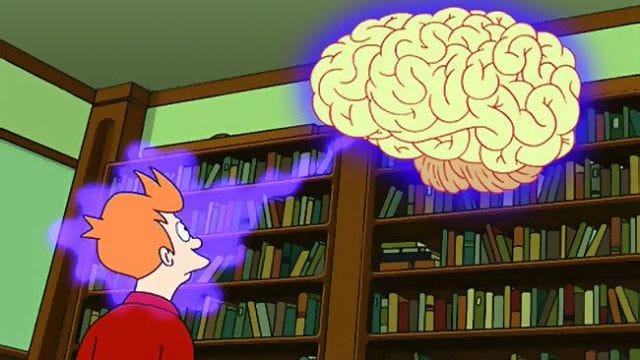
In "work smarter, not harder" news: You can pick up two behaviors that will make your life easier. The first is to shake off your procrastination tendencies by framing things in terms of how much Future You will thank The You Of Now. The second behavior is to figure out how you form habits, then trick yourself into developing new, healthy habits. (vol 2, issue 31)
Speaking of hacking your brain for long-term gain, scientists are plumbing the link between mind-body health, and they recommend being proactive about treating pre-diabetic states, depression or heavy alcohol use (vol 2, issue 33).
In "How will we be parted from our money now?" news: Target's tanking right now because of a strategic misstep during the recent economic downturn. Instead of continuing to stress the "masstige" cachet of its trend-driven items (i.e. "affordable luxury"), Target tried to stress its affordable basics to an audience that doesn't go there for such low-cost staples. It's now trying to carve out a new market segment with young, urban and non-white shoppers (vol 2, issue 32).
Magazines are introducing the idea of "super-subscribers," who pay a few hundred dollars a year, and in return, get a few annual gift boxes in the mail filled with offerings "curated" by the editors. These programs are successful in a few ways: They deliver targeted/interest customers to pertinent advertisers, and they reward loyalty among people who really love the brand (vol 2, issue 33).
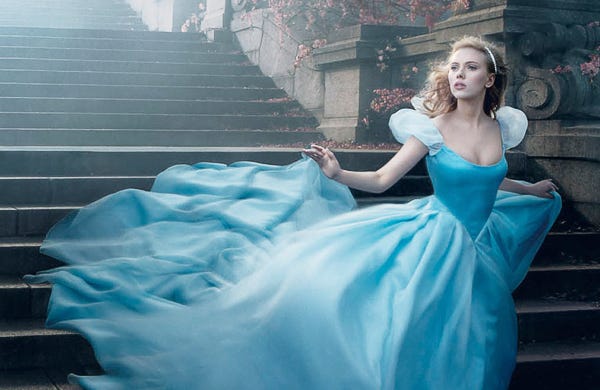
The Disney company has managed to lock down one of the more robust consumer segments to emerge in some time: Women who get into sports later in life. They're also doing really well with maintaining the princess cachet among grown women, including very pricey Jimmy Choo glass slippers (vol 2, issue 36).
Self-service kiosks are very good at separating people from their cash, because they remove any element of "social friction" (i.e. potential embarrassment) from a transaction. But, warn some people, they also remove an appreciation of what human labor is worth. (vol 2, issue 40).
Ikea's formidable research department, combined with some very specific ideas about how people should live in their houses, have combined to bring us a future in which the sofa takes a backseat to a table (vol 2, issue 41).
In "tech news I care about more than anyone probably should" news: There is a pitched battle going on between Yahoo and Google for which search engine people will use in their browser. What the real story here is? The Yahoo search engine is really a front end for Bing!, so this is not so much a Yahoo/Google showdown as it is Microsoft throwing other companies in front of Google (vol 2, issue 39).
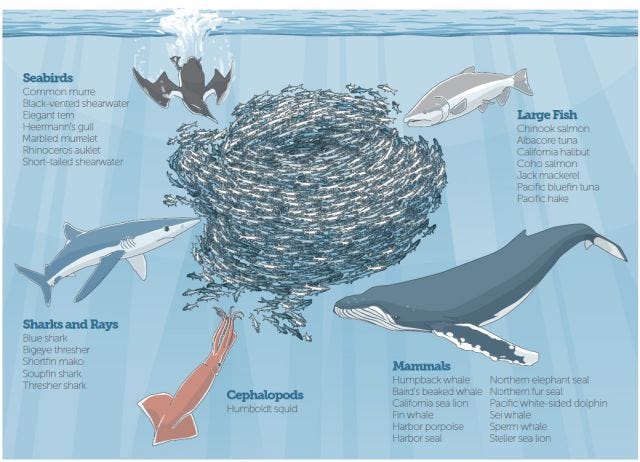
And in "This is how we end up putting bugs on the American menu" news: It's going to be a bad year for the seafood industry in the western U.S. thanks to a one-two punch of a sardine population crash and a blob of warm water that's going to deplete salmon and shrimp populations (vol 2, issue 35).
There's a growing problem in the U.S.'s organic chicken industry: The demand for organic chicken and organic eggs is great, and there is not enough domestically produced organic feed for the fowl (vol 2, issue 41).
And farmers in drought-stricken California are facing a terrible choice: Continue drilling down and deplete the Central Valley's aquifer for as long as possible, or get out of the farming game before the water runs out and nobody wants the land (vol 2, issue 40).
*
And this month in pop culture: I recommended The Enlightened Bracketologist for all of your debates about the best of anything (vol 2, issue 31). I exhorted you all to read Ted Chiang before Story of Your Life makes it to movie theaters (vol 2, issue 34). I approved of Noah Berlatsky's ode to England's bespectacled Boy Wizard, 1990 edition, Tim Hunter (vol 2, issue 36), because we can never read too many classic comics that are readily available used on Amazon.
And then I looked at a picture of gelatin salads and that somehow turned into a recommendation of Julia Reed's entire body of food and lifestyle writing (vol 2, issue 39).
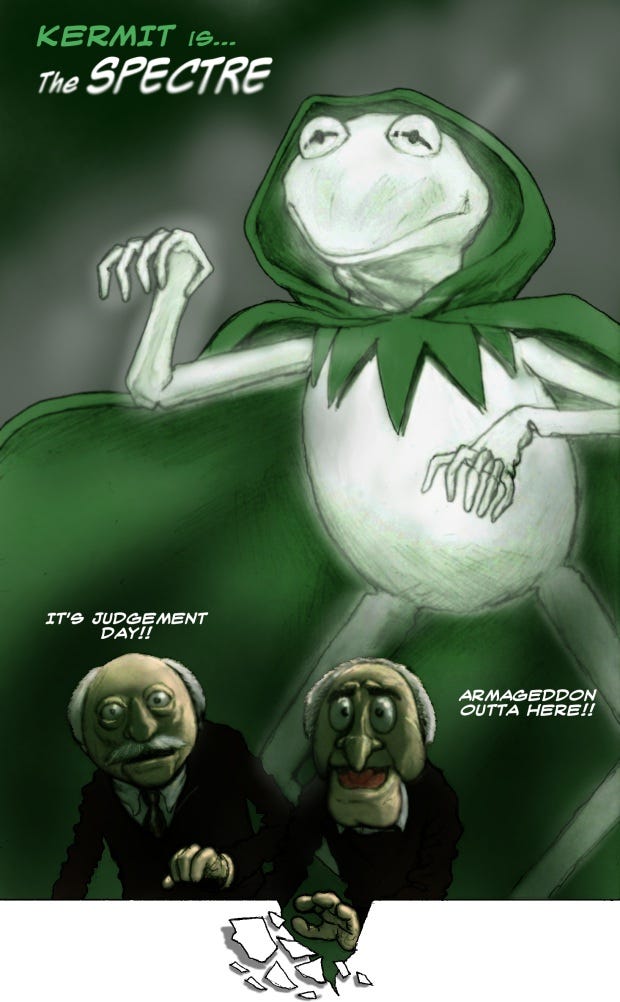
In further eye candy recommendations, I pointed you toward this mash-up of Muppets and comic book covers, MOO's business cards for comic heroes and Pop Chart Lab's business cards for comic heroes and villains, then topped it off with Tim Leung's Super Graphic: A Visual Guide to the Comic Book Universe (vol 2, issue 37).
I also pulled out the best parts from Rolling Stone's look back at "We Are The World" (the story about Stevie Wonder leading Ray Charles to the bathroom still makes me laugh at random moments) and decided that Cyndi Lauper is basically the Dolly Parton of pop (vol 2, issue 34).
Finally, there were a number of March madness-style links to different competitive brackets, but I am ready to declare that particular thematic experiment as a dud. Do you feel differently? Let me know via email or Twitter.
*
Are there typos? I apologize in advance. The only editing class I did not get an A in was copyediting.
Did you miss an issue of So What, Who Cares? The archive is here.
Would you like a run-down of all the books and other pop culture picks ever mentioned in this newsletter? Then check out the Pinterest board. (Note: None of the links are affiliate links; I do not make money off anything I link to.)
If you really like So What, Who Cares?, tell a friend to subscribe.

